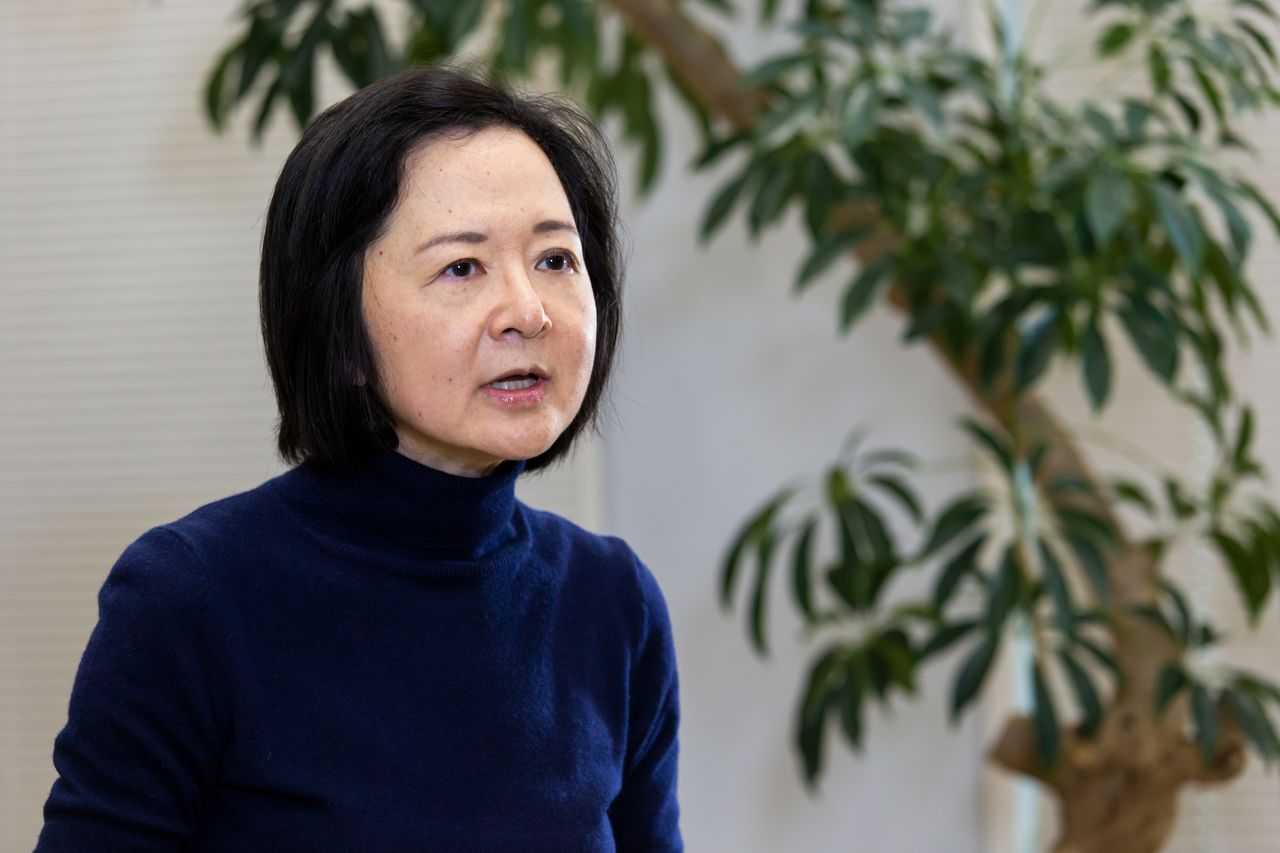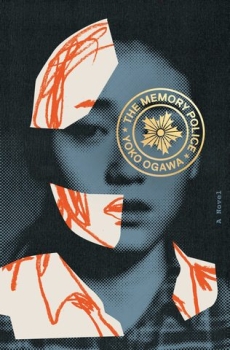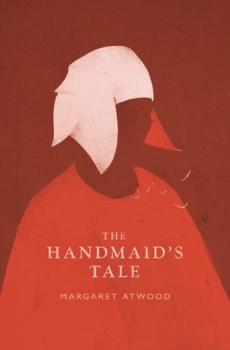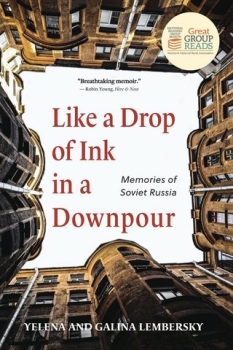The Memory Police by Yoko Ogawa
Yōko Ogawa (born 1962) worked as a secretary before she got married. She quit her job, and began writing during the day when her husband was at work. She thought of it as a “hobby:’ but now, with more than fifty works of fiction and non-fiction published, she has won every major Japanese literary award. The Memory Police was published in Japanese in 1994 and in English translation (by Stephen Snyder) in 2019. It is the fifth of her works to be translated into English, and in 2020 was a finalist for the National Book Award for translated literature, and shortlisted for the Booker Prize.
In an online profile on Nippon, she lists as influences Japanese writers Kenzaburō Ōe and Haruki Murakami, and American author Paul Auster, in particular Moon Palace. She also states that reading Anne Franks’ Diary of a Young Girl was the reason she became an author, and that The Memory Police in particular reflects aspects of Anne Frank’s story.
Reception
The book’s translation has attracted wide attention, with some reviewers making reference to “Orwellian” aspects, and others (including Motoko Rich in the New York Times) viewing it as an example of dystopian fiction. In the interview published on Nippon.com, Ogawa has indicated she was at first surprised to be asked questions about the political relevance of the book. She wrote;
I had no intention of depicting a near-future setting as a political statement—it was meant to be more like the past, before I was born. But when I reread the book for the first time in ages, I was shocked that I’d included a tsunami, and it’s frightening to think that rather than getting further away from the world I created in the book, contemporary readers are connecting it with the near future.
In a detailed review published in the Los Angeles Review of Books, Dylan Brown offered the following assessment of the book’s exploration of themes that are not overtly political.
Ogawa often presents memory as something malleable and dangerous, like molten glass, while also interrogating the many ways memory shapes our identity. .... Her delight in the material world is on full display here: having birds and roses disappear is more obviously sentimental, but the loss of simpler objects like stamps, perfume, and green beans strikes a chord similar to the strange sadness of real disappearances of payphones, cassette tapes, or gas station road maps. This celebration of the object shapes the novel into the type of truly transformative work that can rekindle the joy one finds in life’s smaller pleasures.”
The book club is hosted at the Tempe Public Library, convened by Keith Brown. [email protected]. For the latest book club meeting register at: tempepubliclibrary.org and click Event Calendar.
Core Themes and Influences
Across much of her work, Ogawa deals with issues around memory and forgetting; human cruelty; women’s bodies, and their societal roles; and historical forces. These all feature in the Memory Police. Anne Frank’s particular influence is also apparent, as the book addresses:
Confinement/Small spaces: Ogawa has observed “If I think about it, I’ve always written stories about people shut in small spaces. This may be connected with Anne, but I have this feeling that small spaces are safe.”
Oppression: By writing about someone who had so many things taken from her for no good reason, Ogawa thought the oppressive nature of society would reveal itself.
Writing as freedom: Ogawa notes how “Anne’s heart and mind were so rich,” and that “her diary proved that people can grow even in such a confined situation.”
Discussion questions:
If a friend asked “what’s this book about?” how would you answer?
Although a dog (Don) and a family (the Inuis) have names, none of the main characters do—nor does any place on the island. What is the effect of this?
What do we learn about how memory endures, and where it goes? Objects, spaces, words (spoken and written) and bodies, for example, are all identified as important.
Do the detailed descriptions of the disappearing items make you think differently about everyday concepts and objects?
Do you think this book is most effective in its tackling of big themes? Or in its attention to character and detail, and to the small moments between people?
What emotions did the overall rhythm of the novel stir up? Most narratives would create conflict at points of dramatic crisis, such as the rucked-up rug (p.153), and the search for contraband (p.222-4), but in The Memory Police the tension simply dissipates.
Once calendars disappear, the seasons stop in late winter. What does snow symbolize in the novel?
What is the relation between the narrator, whose previous novels (p.15) are all about “something that had been disappeared,” and the narrator of the novel in the novel? What significance to do see in the difference, that voice was the first thing to be lost by the typist, and the last (after losing her body, piece by piece) by the novelist?
In Japan in 1994 and in the wider world in 2020, people who advance fact-based interpretations of awkward or embarrassing can be denounced, censored or threatened. Do you see the novel as allegory? If so, an allegory for what?
The narrator and R. discuss (p.24-25) what distinguishes those people (like R.) who don’t’ forget after a disappearance, and how the Memory Police target them. In the real world, people have different capacities for memory; how does it impact their lives?
What does the novel say about what it means to be a writer or artist? For example, see pp. 244-245 (her self-doubt as a writer); p.270 (wondering whether her work will last beyond her death); and also the earlier reflections on the fate of all books (p.15)

Yōko Ogawa (born 1962) worked as a secretary before she got married. She quit her job, and began writing during the day when her husband was at work. She thought of it as a “hobby:’ but now, with more than fifty works of fiction and non-fiction published, she has won every major Japanese literary award. The Memory Police was published in Japanese in 1994 and in English translation (by Stephen Snyder) in 2019. It is the fifth of her works to be translated into English, and in 2020 was a finalist for the National Book Award for translated literature, and shortlisted for the Booker Prize.
In an online profile on Nippon, she lists as influences Japanese writers Kenzaburō Ōe and Haruki Murakami, and American author Paul Auster, in particular Moon Palace. She also states that reading Anne Franks’ Diary of a Young Girl was the reason she became an author, and that The Memory Police in particular reflects aspects of Anne Frank’s story.




